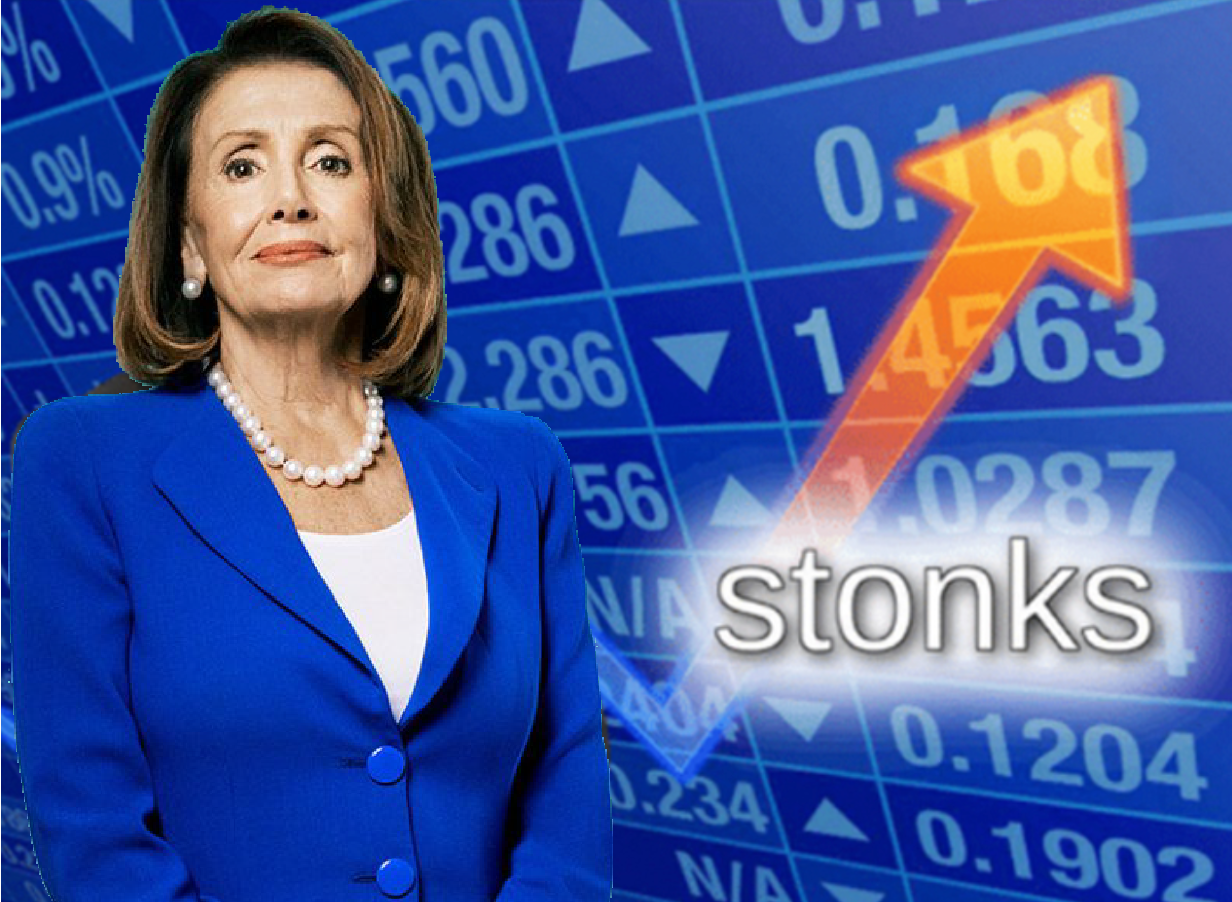
It’s no shock that most members of Congress, over half of whom are millionaires, don’t want to stop themselves and their spouses from being allowed to trade corporate stocks and derivatives while they hold public office. Just 8 percent of the House and 3 percent of the Senate are co-sponsoring bills to ban congressional stock trades.
But even with low levels of cosponsorship, bills like the Ban Conflicted Trading Act that seem to be universally supported outside the halls of Congress can still be brought up, if only to force senators and representatives to take a vote and log their official stance on the matter. One of the biggest factors in whether or not a bill advances to a vote is if it is sponsored or cosponsored by relevant committee chairs. In the case of the pending bills to ban congressional stock trades, the chairs of the committees in the House and Senate they would have to go through are not only not cosponsors, they and their spouses are also big stock traders.
The Senate Homeland Security and Government Affairs Committee, to which the Ban Conflicted Trading Act is referred, is chaired by Sen. Gary Peters (D-Mich.). So far in 2021, Peters has filed five periodic transaction reports with the Senate Office of Public Records disclosing nine purchases, sales, and exchanges of stocks. Peters, whose net worth is estimated by OpenSecrets to be about $4.3 million, could call up the Ban Conflicted Trading Act for a hearing or vote at any time, but he has not taken a single action on the bill.
In the House, the Ban Conflicted Trading Act and the TRUST in Congress Act are both languishing in the House Administration Committee, with no actions being taken. The House Administration Committee is chaired by Rep. Zoe Lofgren (D-Calif.), whose husband, John Marshall Collins, made 71 sales, purchases, or exchanges in corporate stocks in 2020, according to disclosures filed by the representative. Some of Collins’ transactions last year linked with his IRA include purchases of up to $15,000 in Cisco and HCA Healthcare, and sales of up to that amount in Apple, Comcast, Dominion Energy, and Facebook. OpenSecrets’ most recent estimate put Lofgren’s net worth in 2018 at more than $3.8 million. The House version of the Ban Conflicted Trading Act has additionally been referred to the Ag Committee and the Financial Services Committee, both chaired by representatives who have declined to sign on as cosponsors.
The sponsors of these bills have tried to bypass the obstructing committee chairs by getting them on the list of amendments to be voted on during consideration of germane legislation. During the House Rules Committee process for deciding which amendments would be allowed to be considered to the For the People Act, the Ban Conflicted Trading Act and the TRUST in Congress Act were not allowed to move forward. The Rules Committee is often called “the Speaker’s Committee” because the Speaker controls it and its members follow her orders. Speaker Nancy Pelosi’s husband is an active stock trader, often buying and selling corporate shares worth as much as $1 million.
Rep. Alexandria Ocasio-Cortez (D-N.Y.) said today on Twitter that “it’s a very uphill battle to pass” the Ban Conflicted Trading Act, which she cosponsors, and that she is “plugging away” at it along with the main sponsors.
Ever since the stock market’s steep downturn in March 2020, multiple members of Congress have been found to have made trades in stocks relevant to the pandemic after receiving early private briefings on how severe the emerging overseas virus appeared to be. Just yesterday, Sen. Rand Paul (R-Ky.) filed a disclosure showing that in February 2020 his wife bought shares in pharmaceutical company Gilead Sciences, the company that makes the antiviral drug Remdesivir that had shown promising results against coronaviruses such as those that cause SARS and MERS.
Congress outlawed stock trades by members of Congress that are based on nonpublic information they obtained through the course of their official work in the 2012 STOCK Act, but it’s nearly impossible to enforce and it has never been used to put forward charges. The bill did not prevent members of Congress from buying and selling stocks of companies impacted by their legislative work, and so that practice continues unabated and can be observed almost daily in periodic transaction reports filed by senators and representatives.
For more tracking of senators’ and reps’ personal finances, get the free Sludge newsletter.
